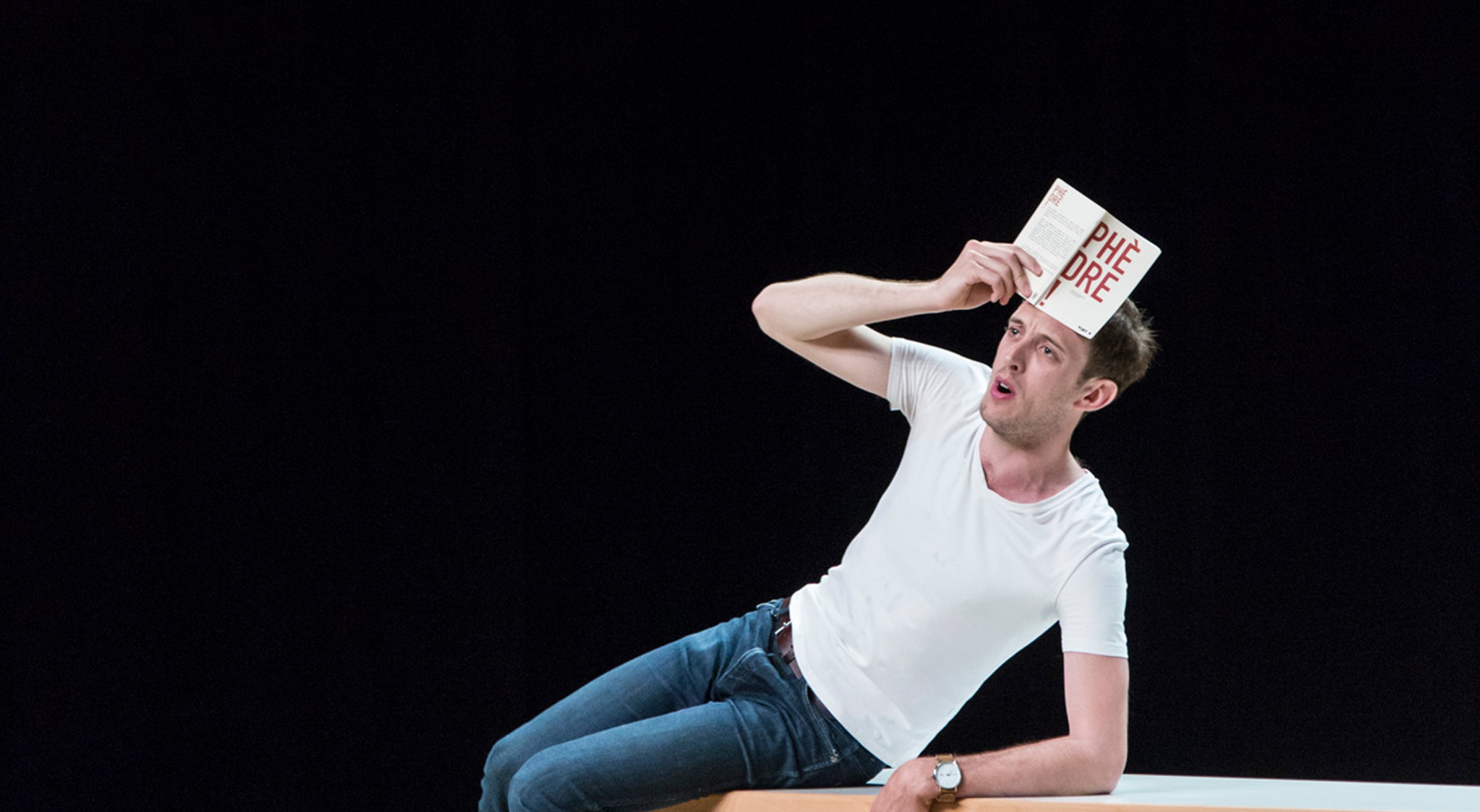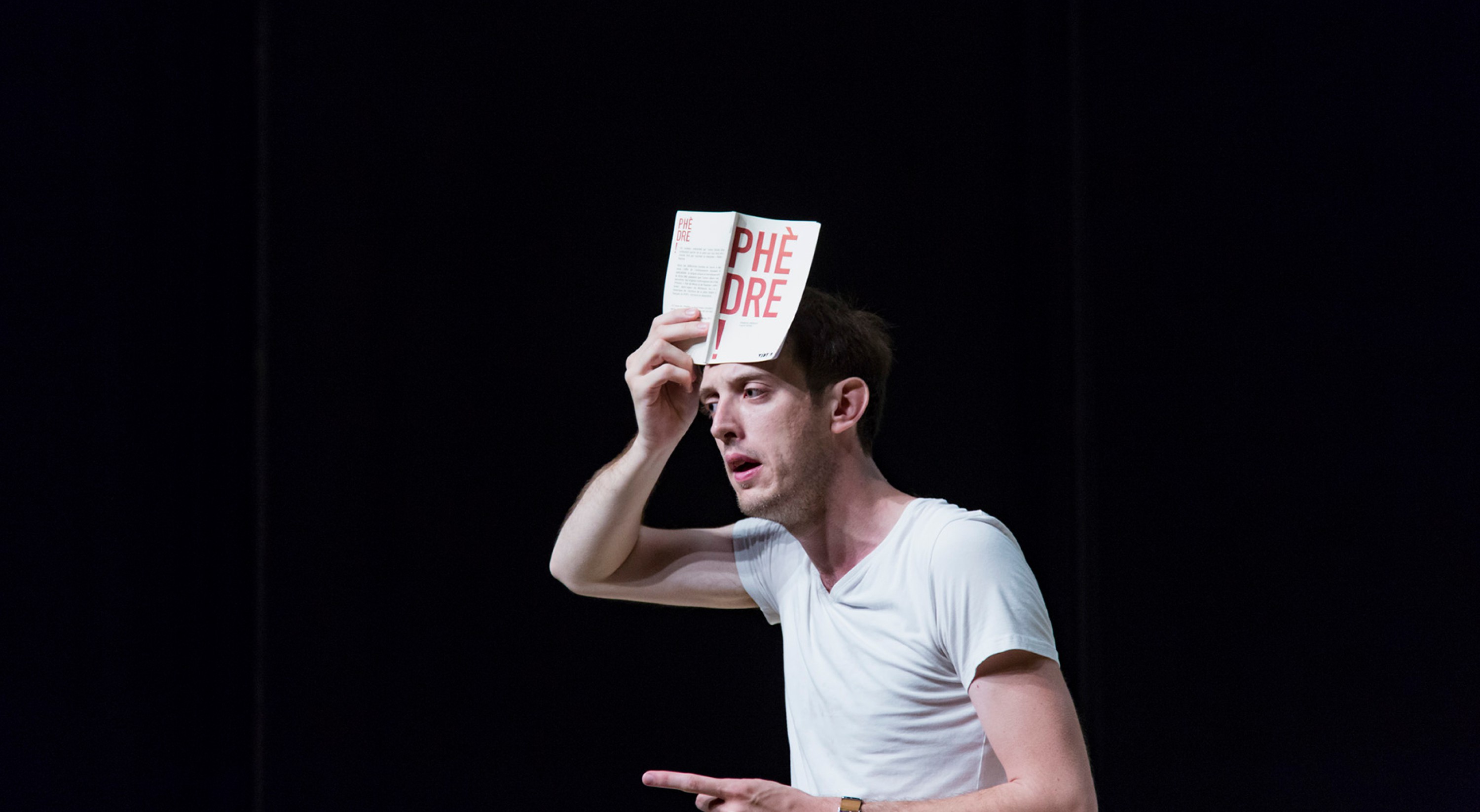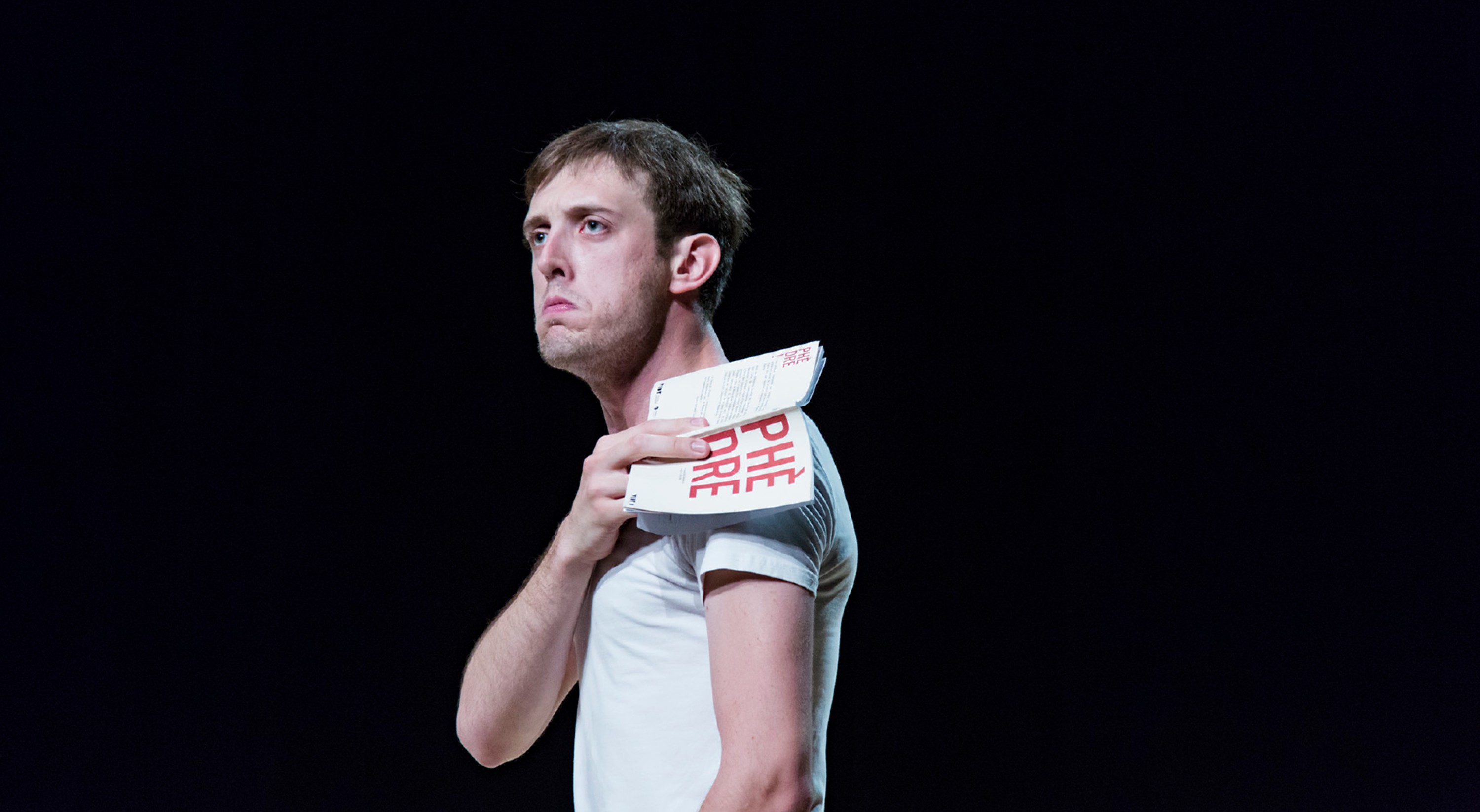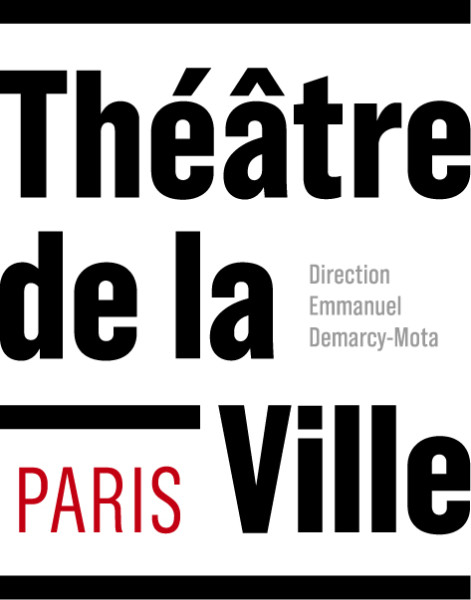François Gremaud
Phèdre !
decemberdec 27 – 31
Conceived and directed by, François Gremaud
Text, Jean Racine, and François Gremaud
With Romain Daroles
Assistant director, Mathias Brossard
Lighting, Stéphane Gattoni
In association with Théâtre de la Ville-Paris and Festival d’Automne à Paris.
A production by 2B company
Executive producer, Théâtre Vidy-Lausanne
In association with Théâtre de la Ville-Paris ; and Festival d’Automne à Paris
With support from Ville de Lausanne, Loterie Romande Pour-cent culturel Migros Hirzel Stiftung, the private Fondation CORODIS in Geneva
With support from Fondation suisse pour la culture Pro Helvetia
Phèdre ! is not Phèdre. Phèdre ! is a comedy that looks like a conference about Phèdre, Racine's tragedy. François Gremaud has written an exhilarating score for an actor who draws upon his passion for the theatre to summon up an irresistible exclamation of joy.
Alone onstage, an orator recounts the story of Phèdre, its context, mythological origins of its characters and Racine's writing. He then ends up performing the piece, in his own way. Romain Daroles – “révélation théâtrale” of the 57th Prix du Syndicat de la critique in 2020 – is this passionate conference speaker takes on all the roles with no other accessory than a book and sublimates the Alexandrian metre with his south-west France accent. Alongside Giselle... - also on the line-up at the Festival d'Automne's 50th edition – François Gremaud brings us the first opus in a triptych focusing on tragic female figures from classical works of the performing arts. The author and director has developed a style which consists of reducing a piece into a “paraphrase” for an orator. Without depriving it of its marvellous language and emotion it stirs up, the tragedy is twisted into a work of comedy bristling with cultural references from today's world and priceless plays on words. If Phèdre is the expression of passion, Phèdre ! is the exclamation of the joy in the de-dramatisation of tragedy.
In the same place



